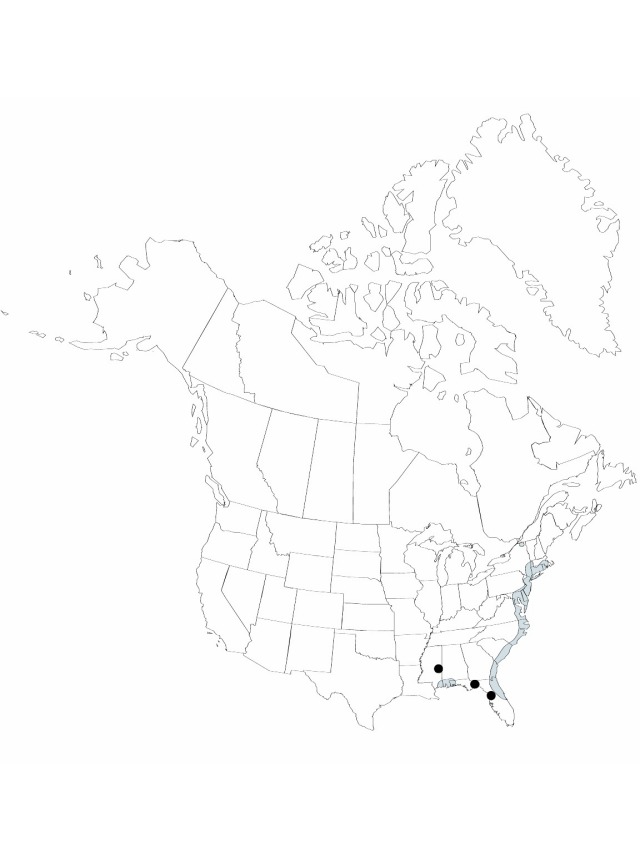Difference between revisions of "Sagittaria subulata"
Abhandlungen herausgegeben vom naturwissenschaftlichen Vereine zu Bremen 2: 490. 1871.
FNA>Volume Importer |
FNA>Volume Importer |
(No difference)
| |
Revision as of 21:00, 16 December 2019
Herbs, perennial, to 40 cm, on tidal muds; rhizomes absent; stolons present; corms present. Leaves submersed, phyllodial, lenticular, 5–40 ´ 0.1–0.4 cm, or rarely floating; petiole terete, 2.4–4 cm; blade linear-lanceolate to ovate, 1–2.5 ´ 0.3–1.5 cm. Inflorescences racemes, of 2–7 whorls, floating, 2–11 ´ 1.5–4.5 cm; peduncles 5–40 cm; bracts connate more than ¼ total length, subulate, 1.5–4.2 mm, delicate, not papillose; fruiting pedicels recurved, cylindric to club-shaped, 0.2–1.1 cm. Flowers 0.4–1.2 cm diam.; sepals spreading to recurved in staminate, erect in pistillate, enclosing flower or fruiting head; filaments dilated, longer than anther, glabrous; pistillate pedicellate, occasionally with ring of sterile stamens. Fruiting heads 0.55–0.8 cm diam.; achenes oblanceoloid, abaxially keeled, 2 ´ 1.5 mm, beaked; faces not tuberculate, wings 1–2, crenate, glands 0–1; beak lateral, erect, 0.2–0.4 mm. 2n = 22.
Phenology: Flowering summer–fall.
Habitat: Streams and brackish bays
Elevation: 0–100 m
Distribution

Ala., Conn., Del., D.C., Fla., Ga., Md., Mass., Miss., N.J., N.Y., N.C., Pa., R.I., S.C., Va., South America (Colombia).
Discussion
Sagittaria subulata occurs in shallow brackish waters near the coast. The plants are especially common in areas that are exposed during low tides.
Selected References
None.